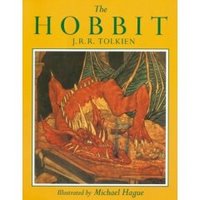The Lost Baron

The Lost Baron
(1940; Bethlehem Books 2001), 297 pp, pb
Wow! Another homerun from Allen French! After Rolf and the Viking Bow, The Red Keep and now the Lost Baron, French has become one of our favorite authors. French really knew how to tell a story. We tend to blow through these books because they are so much fun that we don’t want to put them down. All the while we cover what life was like in feudal Britain.
This story is set in Cornwall in the year 1200. The structure of the story bears the closer resemblance to The Red Keep. A young girl is left the heiress of a castle and its lands after the death or disappearance of her father, but another man holds power over the lands. Further in both stories the young woman is eventually helped by a local young man as he comes to age. These similarities in no way detract from either story in my opinion, or in the opinion of my boys.
In this story Martin is the young hero and he provides a great example of various qualities including bravery, honor, loyalty, humility and wisdom. French also clearly seeks to advocate a concern for the common people from those of the nobility. This story pulled in my 6 year old as well as my 9 and 8 year olds. Even my 3 year old repeated portions of the story to me along the way!
This is another great book and we give it our highest recommendation.
Labels: Allen French



